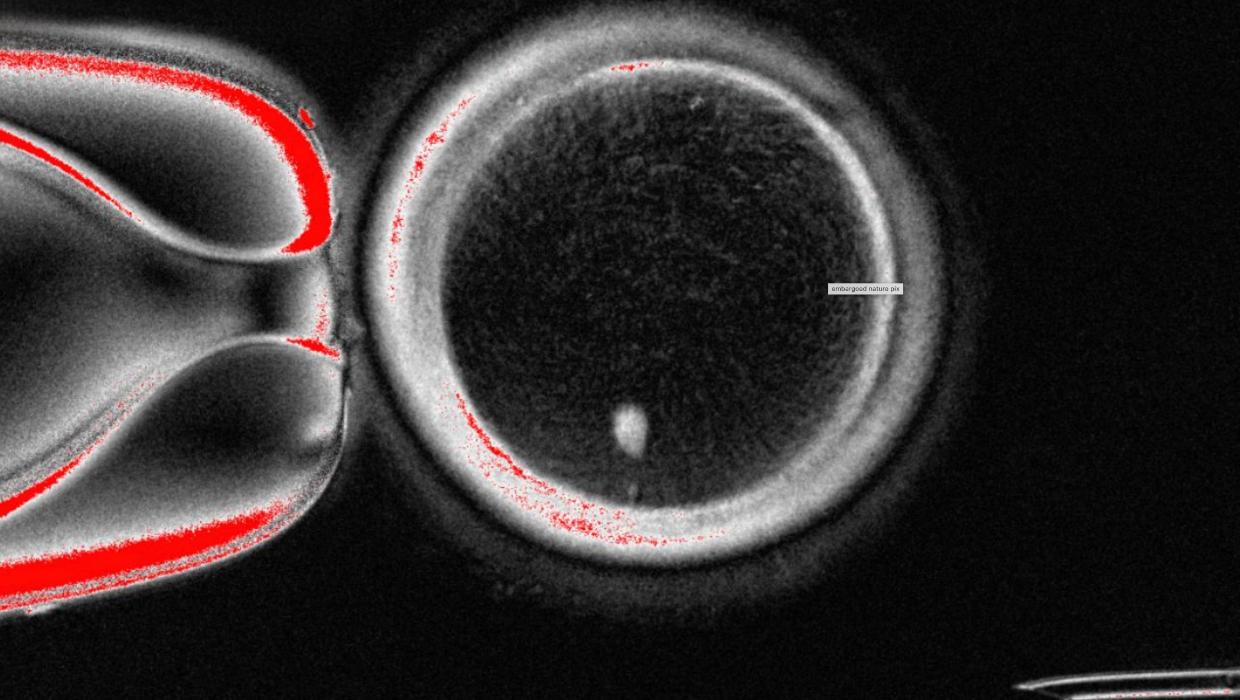Science
Scientists Transform Skin Cells into Fertilizable Human Eggs

Groundbreaking research from US scientists has achieved a significant milestone in reproductive biology by transforming human skin cells into fertilizable human eggs. This innovative approach could pave the way for developing lab-grown eggs and sperm, potentially aiding individuals struggling with infertility.
The study, published in a leading scientific journal, highlights the potential of using skin cells to create gametes. By reprogramming these cells, researchers aim to produce viable eggs that can be fertilized, offering hope to those facing challenges in natural conception.
Advancements in Reproductive Technology
According to a team at the Massachusetts Institute of Technology (MIT), the successful conversion of skin cells into eggs marks a substantial advancement in reproductive technology. The process involves intricate cellular reprogramming techniques that allow researchers to manipulate the genetic material within skin cells, effectively generating the necessary components for egg formation.
This research is part of an ongoing effort to explore alternative methods of conception. The ability to produce lab-grown eggs and sperm could significantly impact assisted reproductive technologies, providing new options for individuals and couples experiencing infertility.
The potential applications of this research extend beyond creating fertilizable eggs. Scientists believe that lab-grown gametes could also play a role in addressing genetic disorders, enabling parents to have children without passing on hereditary conditions.
Future Implications and Ethical Considerations
While the findings are promising, they also raise important ethical questions surrounding the creation and use of lab-grown human gametes. As scientists continue to explore this field, discussions about the implications of artificial reproduction will become increasingly relevant.
Experts emphasize the need for robust ethical frameworks to guide research and application in this area. Ensuring that these technologies are used responsibly and with respect for human dignity will be critical as advancements continue to unfold.
The research team is optimistic about future developments and is currently exploring the feasibility of transitioning from laboratory experiments to clinical applications. If successful, this could revolutionize fertility treatments, making them more accessible and effective for a wider range of individuals.
In summary, the transformation of skin cells into fertilizable human eggs represents a significant step forward in reproductive science. As researchers continue to investigate the potential of lab-grown gametes, the future of conception may hold new possibilities for those looking to expand their families.
-

 World1 week ago
World1 week agoPrivate Funeral Held for Dean Field and His Three Children
-

 Top Stories2 weeks ago
Top Stories2 weeks agoFuneral Planned for Field Siblings After Tragic House Fire
-

 Sports3 months ago
Sports3 months agoNetball New Zealand Stands Down Dame Noeline Taurua for Series
-

 Entertainment3 months ago
Entertainment3 months agoTributes Pour In for Lachlan Rofe, Reality Star, Dead at 47
-

 Entertainment2 months ago
Entertainment2 months agoNew ‘Maverick’ Chaser Joins Beat the Chasers Season Finale
-

 Sports3 months ago
Sports3 months agoSilver Ferns Legend Laura Langman Criticizes Team’s Attitude
-

 Sports1 month ago
Sports1 month agoEli Katoa Rushed to Hospital After Sideline Incident During Match
-

 World2 weeks ago
World2 weeks agoInvestigation Underway in Tragic Sanson House Fire Involving Family
-

 Politics2 months ago
Politics2 months agoNetball NZ Calls for Respect Amid Dame Taurua’s Standoff
-

 Top Stories2 weeks ago
Top Stories2 weeks agoShock and Grief Follow Tragic Family Deaths in New Zealand
-

 Entertainment3 months ago
Entertainment3 months agoKhloe Kardashian Embraces Innovative Stem Cell Therapy in Mexico
-

 World4 months ago
World4 months agoPolice Arrest Multiple Individuals During Funeral for Zain Taikato-Fox





















